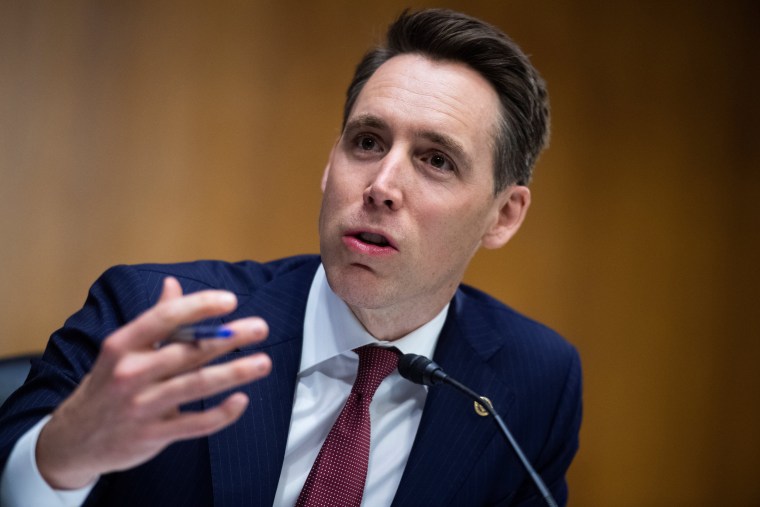Sen. Josh Hawley, R-Mo., unveiled his latest attack on tech’s liability shield in a new bill Wednesday.
The “Limiting Section 230 Immunity to Good Samaritans Act” would allow Americans to sue tech companies that censor political speech or hide content from competitors. Republicans have long complained that tech platforms like Facebook and Twitter censor conservative speech. Though tech companies have repeatedly denied such claims, critics have been fueled by several incidents where platforms say speech was removed in error.
The bill appears to be part of a three-pronged attack on Section 230 protections for tech companies alongside the Department of Justice and the White House. Section 230 is the statute that frees online platforms from liability for their users’ posts while allowing them to engage in good faith content moderation.
For more business updates sign up for newsletters from CNBC.
Hawely’s proposal, co-sponsored by Sens. Marco Rubio, R-Fla., Mike Braun, R-Ind., and Tom Cotton, R-Ark., would remove Section 230 immunity for tech companies unless they promise in their terms of service to operate in good faith, according to a press release. This would open companies to being sued for breaching their contractual duties, according to the release, with a penalty of $5,000 per claim or actual damages, whichever is higher, along with attorney’s fees.
The legislation could put in action key changes being sought by the Trump administration.
President Donald Trump signed an executive order last month that would push the Federal Communications Commission to create rules about how online platforms could remove content from their sites while maintaining immunity. It would encourage the Federal Trade Commission to take action on “deceptive” acts of communication.
But on its own, the executive order is limited in its power, especially given that courts have consistently upheld Section 230 immunity. That’s why the DOJ is also preparing to propose a set of legislative reforms as soon as Wednesday, a Trump administration official told The Wall Street Journal. The reforms, which would have to be taken up by Congress, would reportedly strip companies of legal protections when they facilitate or solicit content or activity from third parties that violate federal law. This could include selling illegal drugs or conducting scams. It also would reportedly strip immunity from platforms in cases of online child exploitation, terrorism and cyberstalking.
While Democrats will likely be resistant to signing onto a bill that endorses Republicans’ claims of conservative censorship from the tech platforms, they have also expressed a desire to reform Section 230 and create more accountability for tech companies to protect users. Sen. Richard Blumenthal, D-Conn., introduced a bill with Sen. Lindsey Graham, R-S.C., earlier this year that would require companies earn Section 230 immunity by certifying their compliance with a set of best practices for detecting and reporting child exploitation materials to law enforcement. Hawley is also a co-sponsor of that bill.
Hawley introduced a different approach to Section 230 reform last year with a proposal that would allow tech companies to win back immunity by submitting their algorithms and content moderation policies to audits determining if they are “politically neutral.”
Tech industry groups have warned that revisions to Section 230, especially those proposed in Trump’s executive order, could have the unintended consequence of stifling speech. Without the protection of Section 230, tech platforms could ultimately take a stricter approach to content moderation to reduce the risk of legal liability.
